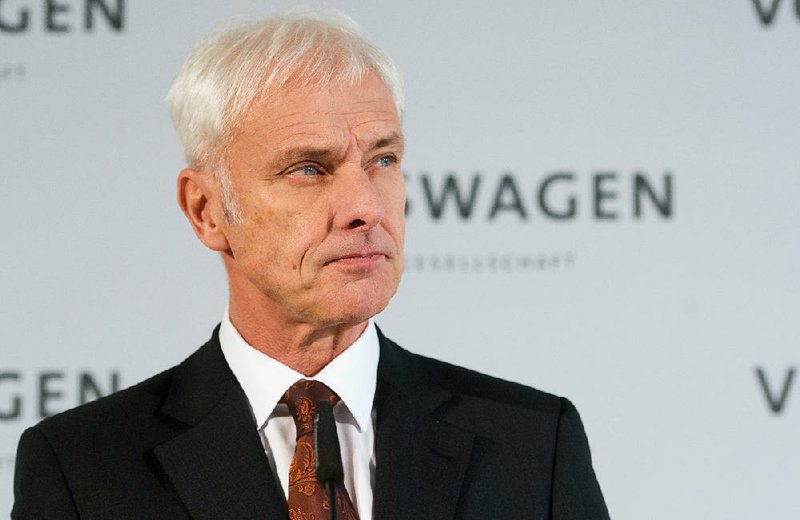WASHINGTON -- Volkswagen's emissions-cheating scandal widened Friday after the U.S. Environmental Protection Agency said the German automaker used software to fool pollution tests on more six-cylinder diesel vehicles than originally thought.
Volkswagen told the EPA and the California Air Resources Board the software is on about 85,000 Volkswagen, Audi and Porsche vehicles with 3-liter engines going back to the 2009 model year. Earlier this month the regulators accused VW of installing the "defeat device" software on about 10,000 cars from the 2014 through 2016 model years, in violation of the Clean Air Act.
"The most unfortunate aspect of this news, in addition to the environmental harm, is that it slows VW's ability to move beyond the negative headlines and start the rebuilding process," said Karl Brauer, senior analyst at Kelley Blue Book, a car-buying website. "You can't recover from a scandal while it's still growing."
The EPA said in a statement Friday night that VW had turned in its proposed fix, but the agency wouldn't give details. The EPA and California Air Resources Board now will review the proposal, the statement said. VW said it is cooperating with regulators.
Leaders of the U.S. House Energy and Commerce Committee said the panel's investigation into the automaker will continue. "Today's announcement adds to the growing list of troubling questions for Volkswagen and we need answers," lawmakers, led by committee Chairman Fred Upton, R-Mich., said in a statement.
The regulators said in a statement that they will investigate and take appropriate action on the software, which they claim allowed the six-cylinder diesels to emit fewer pollutants during tests than in regular driving.
The latest allegation means that more Volkswagen, Audi and Porsche owners could face recalls of their cars to fix the software, and VW could face steeper fines and more intense scrutiny from U.S. regulators and lawmakers.
Audi spokesman Brad Stertz on Friday conceded that VW never told regulators about the software, in violation of U.S. law. He said the company agreed with the agencies to reprogram it "so that the regulators see it, understand it and approve it and feel comfortable with the way it's performing."
The software is on Audi Q7 and Volkswagen Touareg SUVs from the 2009 through 2016 model years, as well as the Porsche Cayenne from 2013 to 2016. Also covered are 2014 to 2016 model year Audi A6, A7, A8, and Q5s, according to the EPA.
Stertz said the software is legal in Europe and it's not the same as a device that enabled four-cylinder VW diesel engines to cheat on emissions tests. VW has told dealers not to sell any of the models until the software is fixed.
VW made the disclosure on a day it was meeting with the agencies about how it plans to fix 482,000 four-cylinder diesel cars equipped with emissions-cheating software.
U.S. regulators continue to tell owners of all the affected cars they are safe to drive, even as they emit nitrogen oxide, a contributor to smog and respiratory problems, in amounts that exceed EPA standards -- up to nine times above accepted levels in the six-cylinder engines and up to 40 times in the four-cylinders.
Stertz said it would cost in the "double-digit" millions of dollars to reprogram all the software on the six-cylinder diesels.
Also Friday, VW said it will cut its spending by $1.07 billion next year and "strictly prioritize" investments as it shores up its finances to deal with its emissions-rigging scandal.
The investment announcement Friday came after the annual planning meeting of Volkswagen's supervisory board, which oversees the chief executive and other top managers. The company said it would invest about $12.84 billion, next year on developing new cars, new technologies and other projects.
That represents a decline of about $1.3 billion from 2014 and was the first time since the financial crisis of 2009 that Volkswagen has not increased investment.
That figure does not include further spending cuts the company plans for its regular operations. Volkswagen has not said how deep those cuts will be.
Information for this article was contributed by Tom Krisher and Michael Biesecker of The Associated Press; by Jack Ewing of The New York Times; and by Jeff Plungis and Dana Hull of Bloomberg News.
Business on 11/21/2015

